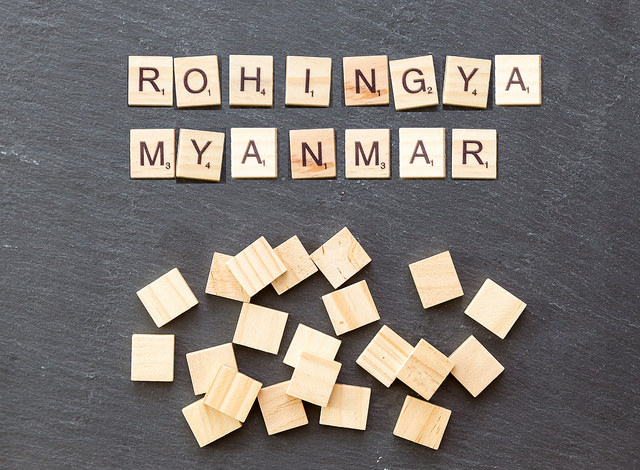Immigration
Refugees more than once, Rohingya fear return to Myanmar

The 30-year-old Rohingya Muslim, who has been slowly rebuilding a shadow of a normal life in a sprawling and squalid refugee camp in Bangladesh, is in no mood to return home to Myanmar. (Photo by Marco Verch/Flickr, CC BY 2.0)
KUTUPALONG REFUGEE CAMP, Bangladesh — Mohammad Younus is a refugee for the second time.
The 30-year-old Rohingya Muslim, who has been slowly rebuilding a shadow of a normal life in a sprawling and squalid refugee camp in Bangladesh, is in no mood to return home to Myanmar.
After Myanmar expressed readiness to start receiving an estimated 680,000 Rohingya Muslims who fled incredible violence over the last five months, Younus said he would rather die in the camp than go back again to the land of his birth.
“They have been killing Muslims for a long time now,” he said. “We run and come to Bangladesh. Then we go back. We come back to Bangladesh, and go back again. They continue the killings.”
Younus first fled with his family in 1991 as a 4-year-old, when his parents joined a wave of 250,000 Rohingya escaping forced labour, religious persecution and attacks from Buddhist mobs in Myanmar’s northern Rakhine state, where most Rohingya live. Three years later, the family returned home, fooled, he says, by the promises made by the U.N. refugee agency and Myanmar’s government.
Sixteen years later, Younus found himself again fleeing for his life as Myanmar soldiers and Buddhist mobs unleashed a brutal retaliation after a Rohingya insurgent group attacked dozens of police posts on Aug. 25.
Under heavy international criticism of what U.N. and U.S. officials labeled “ethnic cleansing,” Myanmar signed a repatriation deal with Bangladesh to start sending the refugees back this Tuesday.
According to the deal, those who return will first live in transit camps before eventually going back to their villages. But the plan has been delayed after a last-minute announcement by Bangladesh officials, who said they still have to draw up lists of refugees and complete the process of verification. They have not said how long the delay will last. They also reiterated that all returns would be voluntary.
On Tuesday, Myanmar again promised it was ready to begin accepting the Rohingya. But the refugees say they have been on this road before.
“I kept going back because I still have love for my country in my heart,” said Abdul Gaffar, a 50-year-old who fled spasms of violence in Myanmar in 1978, 1991, and last year.
“They take us back saying they will give us everything, but don’t give us anything,” he said. “They say they will meet our demands, but they don’t. The government cheats us after taking us back.”
The Rohingya trace their history before modern borders were drawn, and have long lived and traded on both sides of what is now the Myanmar-Bangladesh frontier. They have also long been a persecuted minority in Myanmar.
While the recent exodus of Rohingya has spawned one of the largest refugee crises in the world, smaller groups of Rohingya have been fleeing earlier waves of violence since the late 1970s. They are widely derided in Myanmar as “Bengalis,” illegal migrants from Bangladesh, and have long been treated as outsiders by the Buddhist majority. In 1982, nearly all Rohingya were stripped of their citizenship rights.
Even if some Rohingya are able to return home, many probably won’t recognize what they left behind. Rights groups have described how hundreds of villages across Rakhine state were set on fire after troops and mobs descended to chase out the residents. Homes and crops in the fields were reduced to ashes.
“They gave us back our land but didn’t rebuild our home. This is how we have been living,” said Younus, recalling when he and his family returned to Myanmar in the mid-1990s. The extended family lived in a small hut that they pooled resources to build, he said, only to abandon it when the attacks started last year.
“When the massacre began this time, when they started shooting and killing everyone, they were chasing after me as well,” he said. “But somehow I managed to escape and come here. So I have experienced this ordeal twice. I have been in grief all my life.”























